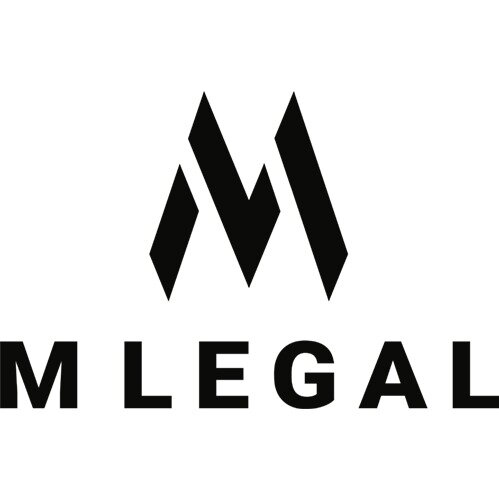Best Collaborative Law Lawyers in Munich
Share your needs with us, get contacted by law firms.
Free. Takes 2 min.
Free Guide to Hiring a Family Lawyer
List of the best lawyers in Munich, Germany
About Collaborative Law in Munich, Germany
Collaborative Law is an alternative dispute resolution process that enables individuals to resolve legal matters outside of courtroom litigation. In Munich, Germany, Collaborative Law provides a cooperative and non-adversarial approach to resolving family law issues, such as divorce, child custody, and property division. It encourages open communication, negotiation, and problem-solving to reach mutually beneficial agreements.
Why You May Need a Lawyer
While Collaborative Law promotes a more amicable resolution process, having a lawyer can greatly assist you in navigating through the complexities of your case. Situations where you may require legal help in Collaborative Law include:
- Divorce or separation
- Child custody or visitation disputes
- Property division and financial matters
- Child and spousal support
- Pre- and postnuptial agreements
Local Laws Overview
When engaging in Collaborative Law in Munich, Germany, it is important to be aware of the following key aspects of local laws:
- The German Civil Code (Bürgerliches Gesetzbuch) governs family law matters in Munich.
- Child custody decisions prioritize the best interests of the child.
- The court may be involved to approve and enforce the final agreement reached through the Collaborative Law process.
Frequently Asked Questions
1. Can anyone participate in the Collaborative Law process?
Yes, as long as both parties voluntarily agree to engage in Collaborative Law, anyone can participate. However, it is recommended to consult with a lawyer to understand the potential benefits and implications.
2. How is Collaborative Law different from mediation?
While both Collaborative Law and mediation involve resolving disputes outside of court, they differ in key aspects. Collaborative Law involves each party having their own attorney who assists them throughout the process. Mediation, on the other hand, typically involves a neutral mediator facilitating negotiations between the parties.
3. What if the Collaborative Law process fails to reach an agreement?
If the Collaborative Law process fails, both parties will need to seek new legal representation to pursue their case through traditional litigation in court.
4. How long does the Collaborative Law process usually take?
The duration of the Collaborative Law process varies depending on the complexity of the case, the willingness of both parties to communicate and compromise, and the specific requirements of the court. On average, the process often takes several months to a year.
5. Can the agreements reached through Collaborative Law be modified in the future?
Once the court approves the agreements reached through Collaborative Law, they become legally binding. However, certain circumstances, such as significant changes in financial situations or the best interests of children, may allow modifications to be made with court approval.
Additional Resources
If you need further guidance or information regarding Collaborative Law in Munich, Germany, consider reaching out to the following resources:
- Collaborative Law Association Germany (www.collaborative-law.de)
- Munich Bar Association (www.rak-muenchen.de)
Next Steps
If you require legal assistance in Collaborative Law, we recommend following these steps:
1. Research and choose a reputable lawyer experienced in Collaborative Law.
2. Schedule an initial consultation with the lawyer to discuss your case and understand their approach.
3. Determine if the Collaborative Law process is suitable for your situation, and if so, communicate your wish to engage in it to your lawyer.
4. Work closely with your lawyer throughout the Collaborative Law process to negotiate and reach a mutually agreeable resolution.
5. If an agreement is reached, ensure it is properly documented, reviewed by the court if necessary, and followed through.
Remember, legal matters can be complex, so it's crucial to seek professional legal advice for accurate guidance tailored to your specific circumstances.
Lawzana helps you find the best lawyers and law firms in Munich through a curated and pre-screened list of qualified legal professionals. Our platform offers rankings and detailed profiles of attorneys and law firms, allowing you to compare based on practice areas, including Collaborative Law, experience, and client feedback.
Each profile includes a description of the firm's areas of practice, client reviews, team members and partners, year of establishment, spoken languages, office locations, contact information, social media presence, and any published articles or resources. Most firms on our platform speak English and are experienced in both local and international legal matters.
Get a quote from top-rated law firms in Munich, Germany — quickly, securely, and without unnecessary hassle.
Disclaimer:
The information provided on this page is for general informational purposes only and does not constitute legal advice. While we strive to ensure the accuracy and relevance of the content, legal information may change over time, and interpretations of the law can vary. You should always consult with a qualified legal professional for advice specific to your situation.
We disclaim all liability for actions taken or not taken based on the content of this page. If you believe any information is incorrect or outdated, please contact us, and we will review and update it where appropriate.









